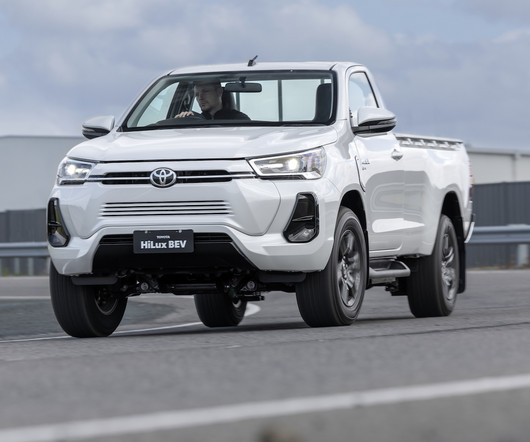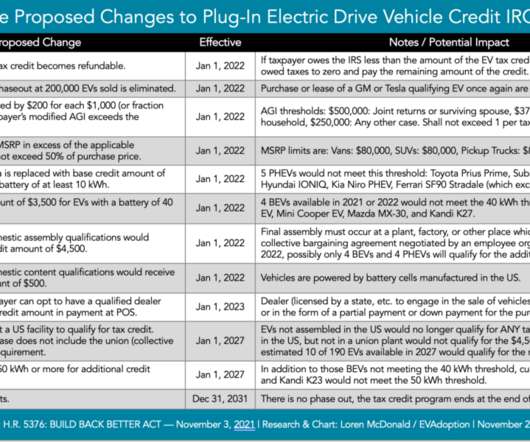ALABC: 48V mild hybrids can meet emission targets with CO2 reductions of 15-20%
Green Car Congress
JANUARY 27, 2016
Current mild-hybrid vehicle projects, in partnership with Ford and Hyundai/Kia, that utilize advanced 48V lead-carbon batteries, can reduce CO 2 emissions by 15-20%, according to the latest data from the Advanced Lead Acid Battery Consortium (ALABC), presented at the Advanced Automotive Battery Conference (25-28 January, Mainz).











Let's personalize your content